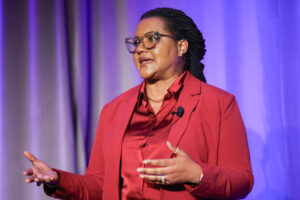This year’s open enrollment period may offer a glimpse of the new normal. Employees are more interested in their benefits and in need of more support choosing them than they were before the COVID-19 pandemic.
Studies show that employees plan to scrutinize their health coverage and financial protection in the wake of the public health and economic crises that started early this year and continue to various extents across the country — and the world.
But employees could struggle to get information that they want because the in-person informational meetings and presentations that were hallmarks of open enrollment periods pre-pandemic have been canceled. Many employers still have not re-opened their workplaces and those that have done so have implemented social distancing and other precautions to prevent the spread of COVID-19.
With more information wanted and less in-person interaction to be had, holding open enrollment during COVID-19 has become yet another challenge that human resource teams must rise to if they want to improve the employee experience and increase organizational efficiency during the pandemic.
Employees have questions.
One of every two employees plans to research their coverage options more than in the past because of the pandemic, according to the 2020 Aflac WorkForces Report. This differs significantly from previous years when nine of 10 employees chose the same benefits year-after-year.
One-third of employees either do not feel confident or are unsure if their health benefits will protect them or their family in the event they are affected by COVID-19, Aflac says. Sixty-three percent of employees expect at least one expanded benefit, such as supplemental insurance or telemedicine.
More than half of workers want to know if benefits cover COVID-19, Lincoln Financial Group says. “We know benefits have always been a tool for employers to attract and retain talent, but they are truly an essential need for employees in the wake of COVID-19,” Eric Reisenwitz, senior vice president, interim president, group protection, Lincoln Financial Group, stated in a press release.
Lincoln Financial says that 34% of employees report they have reached out to their employers for benefits information, and 24% of employees report that they more often look to their employers for benefits information now, as compared to the time before COVID-19.
“Just offering the benefits isn’t enough — employers need to commit to educating their employees about the available benefits, and what they cover — and this year they need to do it all virtually,” Reisenwitz said
Companies are using initiatives like virtual benefits fairs and on-demand benefits guides and webinars to educate remote employees about their enrollment options.
Employers adapt.
Giving employees the attention they want in a way that allows them to get the information that they need to make the best decisions possible for themselves and their personal circumstances will be the biggest challenge for employers during this year’s open enrollment, Kara Hoogensen, senior vice president of specialty benefits at Principal, told Employee Benefit News for an article about how coronavirus is changing open enrollment.
“Much deeper and more digital — that’s going to be key to success for this open enrollment season,” she said.
One in five organizations have changed their open enrollment procedures because of the pandemic, Human Resource Executive reported in an article on how HR can succeed with open enrollment in a pandemic, citing research from the International Foundation of Employee Benefit Plans. Most of the changes involved shifting from in-person to virtual.
For example, companies are emailing information to employees or mailing it to their homes instead of relying on posters and signs in the workplace. Videos, podcasts, and interactive websites are also becoming popular alternatives.
“At a time when everything feels uncertain, open enrollment is an opportunity for employers to connect with their employees and show their understanding and support for their well-being, and in turn, boost performance and engagement. Put your employee needs first, select the right channels and lead with compassion for the best outcomes both for the employees and for the business,” Nua Group partner Chris Renz wrote in a Forbes column on ways to increase engagement in remote open enrollment.
Employees want more information during open enrollment than before, and they will appreciate employers providing it efficiently — both now and in the new normal to come.
Providence Technology Solutions helps organizations improve the efficiency and effectiveness of their HR functions by aligning technology and processes with their business needs. Learn how we could help your organization improve your employee experience through our HCM Consulting services.
Contact us today to discuss your needs online, by email at info@theptsteam.com or by calling 904.719.8264.







